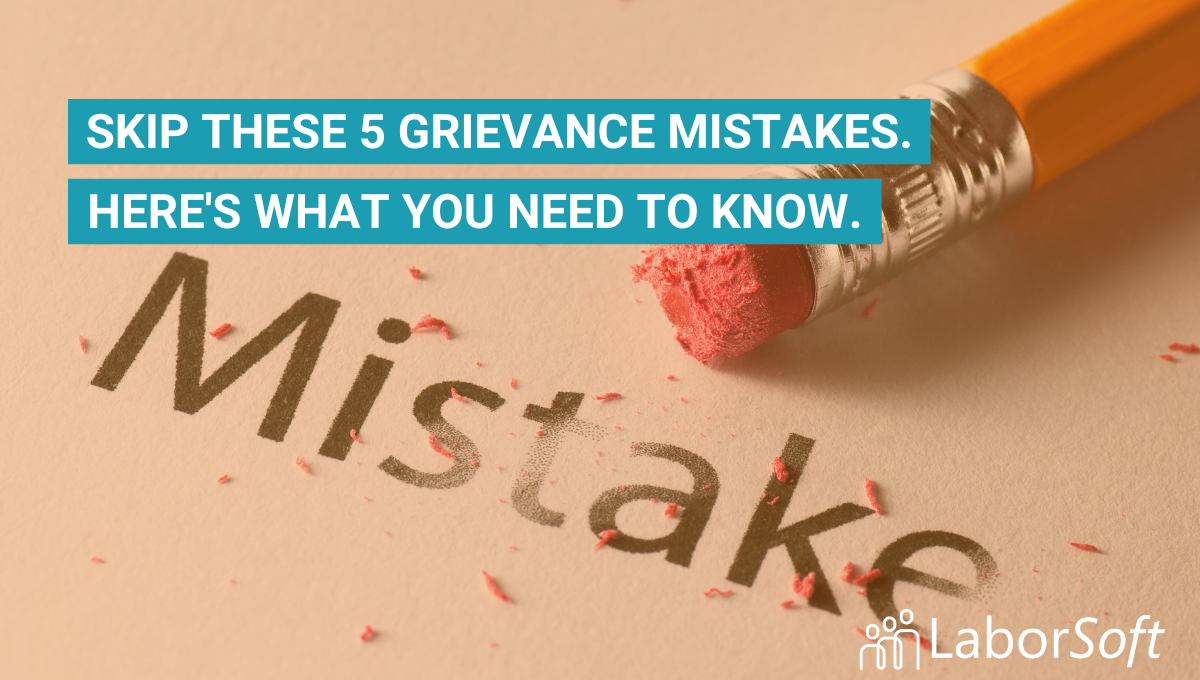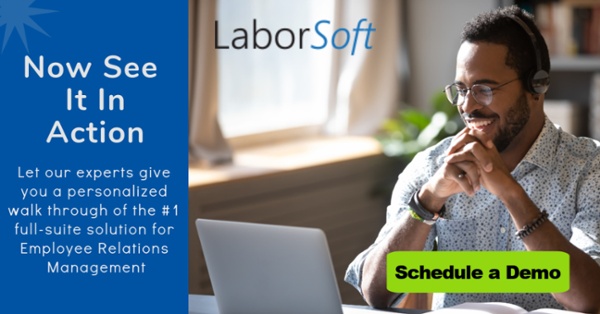Compliance & Legal | Grievances
Grievance Procedures: 5 Common Mistakes Made by Employers
Read Time 4 mins | Oct 11, 2023 | Written by: Frankie Kourtis

One of the cornerstones of effective HR is being able to handle workplace complaints properly, in a way which minimizes liability and -hopefully- resolves the issue with as little drama as possible. Whether the grievance comes from a single employee, a group, or from an employee union, it's vital to handle complaints with the right grievance procedures in a way which makes the situation better, rather than worse.
Unfortunately, this doesn't always happen, and we've seen a few too many situations where a business has made extra trouble for itself by mis-handling grievances - such as in these five common situations.
Protect Yourself And Prevent Unnecessary Conflict By Avoiding These Five Common Mistakes In Handling Workplace Complaints
1. Escalating the complaint too quickly
Every employee complaint is important to them and it needs to be addressed. While doing things by-the-book is key to avoiding larger issues, there are cases that call for mediation, and these might be settled simply by talking things out. A good labor and employee relations software system is designed to save time and reduce errors — in part because swift, efficiency resolutions are desirable — but don't let convenience or urgency rush you to escalation or judgment. Obviously, there will be situations where rapid official action needs to be taken, but it's worth stopping to think: Could this resolved just through more effective communication and an initial discussion?
2. Not keeping an open mind
When fielding a workplace grievance, it is vital to keep an open mind about the accusation until other parties have been interviewed and investigation has been conducted. This cuts both ways. On one hand, it's tempting to take a serious allegation (such as sexual harassment) at face value, but without further investigation, there's no way to prove the validity of the accusation. On the other hand, you may have an employee who's been known to amplify situations for one reason or another, requiring you to look past this to be completely unbiased. If you disregard what turns out to be a legitimate employee complaint, you would still be setting yourself up for liability. "The Boy Who Cried Wolf" is a parable, not precedent.
3. Not following your own documented procedures
When your company has a set written policy of any kind, adherence to that documented policy is paramount. As short term telecommuting agreements evolved into permanent hybrid work policies, clear and consistent communication and enforcement of official policies was necessary to avoid grievances.
Consistency also matters for the grievance process itself. When you have policies for how workplace grievances are to be handled, you must stick to them or put your position in the case further at risk. It can be tempting to take shortcuts, but those can often end up causing unforeseen problems - particularly if the complaint escalates into a serious matter. Failure to adhere to grievance procedures and policies could give parties involved an excuse to claim discrimination or favoritism in the handling of the grievance.
4. Taking too long
We understand, resources are limited, and you may not always have as many staff on-hand as you'd like. Nevertheless, too many delays in handling or investigating a workplace complaint can cause much bigger trouble down the line - even if those delays were justified from a manpower perspective. Slow processes that prevent HR issues from being addressed in a timely fashion can lead to larger employee relations issues over time.
It's a good idea to keep the employee(s) bringing the complaint in the loop, and proactively apprise them of what progress has been made. This makes it much less likely they'll feel they are being ignored, even if progress is slower than they'd like.
5. Not verifying up-front what outcome the employee(s) want
When an employee or group brings a complaint to HR, it's a good idea to always ask what outcome they're looking for. Sometimes they merely want to vent. Other times, all they really want is an apology, or an acknowledgement of the validity of their complaint. Make sure their complaint is being heard, as is their desired course of action to take everything into consideration. It's a good idea to head into any employee relations investigation with a thorough set of questions to help you make an informed decision.
LaborSoft’s innovative technology is one of many integral solutions that keep your business, in business. Our analytics, case management workflows, and our central repository of documentation streamlines HR case management to mitigate risk of operational bottlenecks, costly lawsuits, and legal ramifications stemming from HR issues and complaints. This sensitive data requires that maximum security protocols are in place and that your information is protected at all times.
Contact us for a customized demonstration and learn how LaborSoft can help you improve communications, build a more collaborative, safe, and supportive workplace, while reducing the likelihood of costly litigation.
This blog was originally published on Feb 25, 2019This blog was orignally published on 2/15/19 and updated on 10/11/23.


